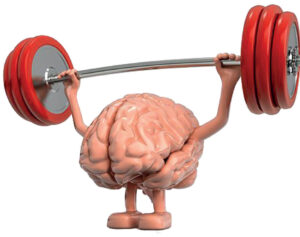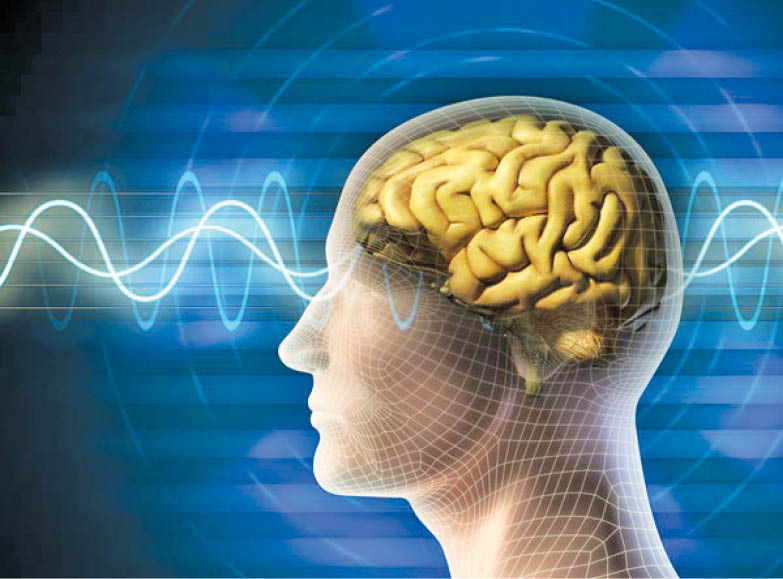Psychologist Mehezabin Dordi practices at the Sir H N Reliance Foundation Hospital, where she assesses, formulates and implements comprehensive therapeutic interventions for patients with psychological / psychiatric problems, and others.
.
 Growing older need not necessarily assume the decline of one’s mental abilities. There’s a lot you can do to keep your mind sharp and alert, as you age. According to research, many of the supposed age-related changes that affect the mind, such as memory loss, are in fact, lifestyle related! Just like muscles get flaccid with lack of activity, so does the brain. A marked decline in mental abilities could be the result of factors like prescription medications or disease. Older people are more likely to take a range of medications for chronic conditions and this combination of drugs can also affect the mind.
Growing older need not necessarily assume the decline of one’s mental abilities. There’s a lot you can do to keep your mind sharp and alert, as you age. According to research, many of the supposed age-related changes that affect the mind, such as memory loss, are in fact, lifestyle related! Just like muscles get flaccid with lack of activity, so does the brain. A marked decline in mental abilities could be the result of factors like prescription medications or disease. Older people are more likely to take a range of medications for chronic conditions and this combination of drugs can also affect the mind.
There are a number of age-related factors that impact the brain. These could include fat and other deposits accumulating within brain cells, hindering normal functioning; Neurons that die from ‘old age’ and are not replaced (the loss of neurons means the brain getting smaller with age); and messages between neurons are transmitted at a slower speed. Certain diseases that are more common to old age, such as Alzheimer’s disease, can also be the underlying cause of declining mental abilities.
Every brain changes with age, and mental function changes along with it. Mental decline is common, and it’s one of the most feared consequences of aging. But cognitive impairment is not inevitable. Here are 9 ways you can help maintain brain function:
- Mental Stimulation: Scientists have discovered that brain activities stimulate new connections between nerve cells and may even help the brain generate new cells, developing neurological ‘plasticity’ and building a functional reserve that provides a hedge against future cell loss. Any mentally stimulating activity helps build up your brain. You can read, take courses, try ‘mental gymnastics’ with word puzzles or math problems; experiment with activities that require mental effort, such as drawing, painting, crafts, playing games, puzzles, etc.
- Physical Exercise: Research has proven that using your muscles helps your mind. Exercise spurs the development of new nerve cells and increases the connections between brain cells, resulting in making the brain more efficient and adaptive, which translates into better performance. Exercise also lowers BP, balances blood sugar and cholesterol levels and reduces mental stress – all of which helps your brain as well as your heart.
- Improve Your Diet: Good nutrition helps your mind and your body. People who follow diets that emphasizes on consumption of fruits, vegetables, fish, nuts, unsaturated oils (olive oil) and plant sources of proteins, are less likely to develop cognitive impairment and dementia.
- Balance Your Blood Pressure And Sugar Levels: High blood pressure and diabetes in midlife increases the risk of cognitive decline in old age. Modify your lifestyle to keep your BP and diabetes under control by staying lean, exercising regularly, limiting alcohol intake, reducing stress and eating right.
- Improve Cholesterol Levels: High levels of LDL (or ‘bad’ cholesterol) is associated with an increased risk of dementia. Diet, exercise, weight control and avoiding tobacco go a long way in improving your cholesterol levels. If greater help is required, consult your doctor for medical intervention.
- Avoid Tobacco And Alcohol: Avoid tobacco in all its forms. Excessive drinking is a major risk factor for dementia. If you are a drinker, ensure that you limit yourself to two drinks a week.
- Emotional Wellness: People who are anxious, depressed, sleep-deprived or exhausted tend to score poorly on cognitive function tests. While poor scores may or may not necessarily predict an increased risk of cognitive decline in old age, good mental health and restful sleep are certainly important goals.
- Build Social Networks: Strong social ties have been associated with lower risk of dementia, as well as lower BP and longer life expectancy. The human brain is known to function well with good social connections and having people around to interact.
- Utilize Memory Enhancement Skills: Remember that good recall is an acquired skill. There are ways to improve a failing memory, no matter what your age. Check out the following suggestions:
Memory Enhancement Skills
- Pay Attention: It takes about 8 seconds’ focus to move something into our memory centre. Therefore, don’t try to multitask when needing to remember new information. You might try mentally cataloguing something you are doing to help your memory.
- Repeat: Rehearse information, such as a name, to help it to be transferred into long-term memory.
- Chunk information: Instead of trying to remember the 10 digits of a phone number such as 1372945869 as just 10 numbers, chunk them into 137-294-5869, and you are more likely to remember them. This also works for short lists.
- Use Cues: Such as visual image of your phone sitting in your driveway when you need to make a call when you return home.
- Use Word Associations: Take a word/information and attach it to some other word that is related to it.
- Use Rhymes: You can make a rhyme out of a name you’re trying to remember, or even an extended rhyme out of a short list of groceries you need to pick up at the store.
- Use Acronyms: VIBGYOR is used to help schoolchildren remember the seven colors of the rainbow; Red, Orange, Yellow, Green, Blue, Indigo, and Violet.
- કેવો સુંદર જવાબ! - 29 March2025
- પારસી સન્નારીઓ તેમના જાદુઈ સ્પર્શ સાથે બની સુરત મેરિયોટ અથવા લાઇન્સના રસોડાની રાણીઓ - 29 March2025
- મોબેદ મેહરાબાન ફિરોઝગરીનું અવસાન - 29 March2025
